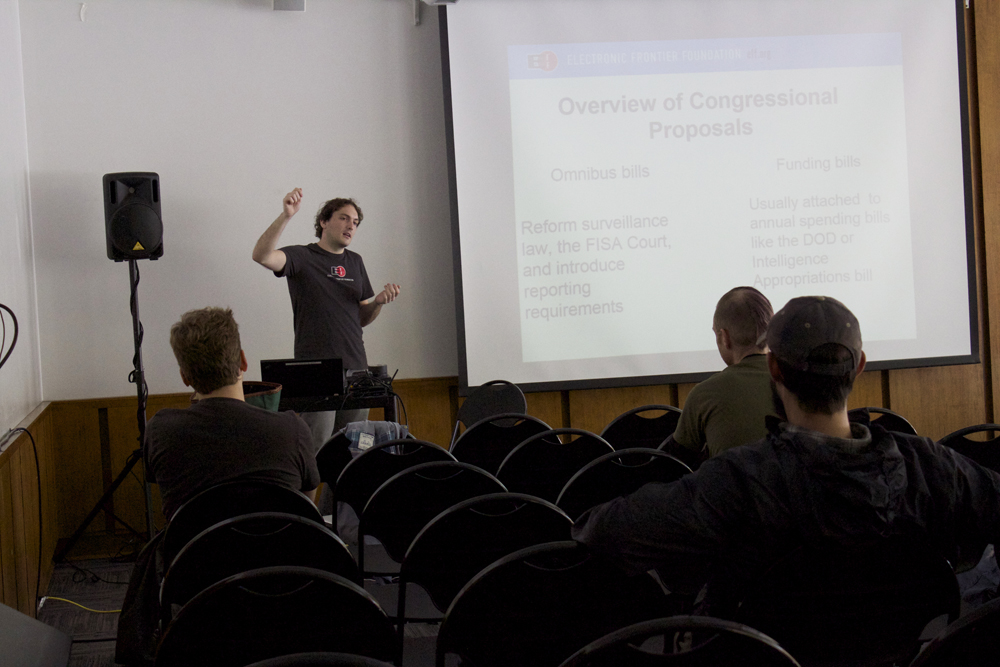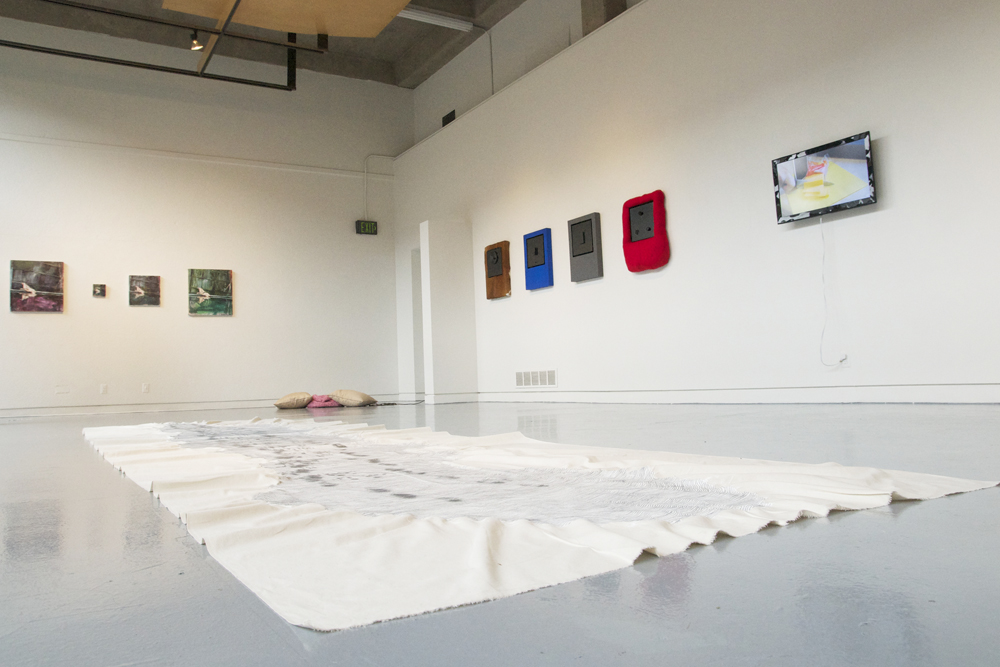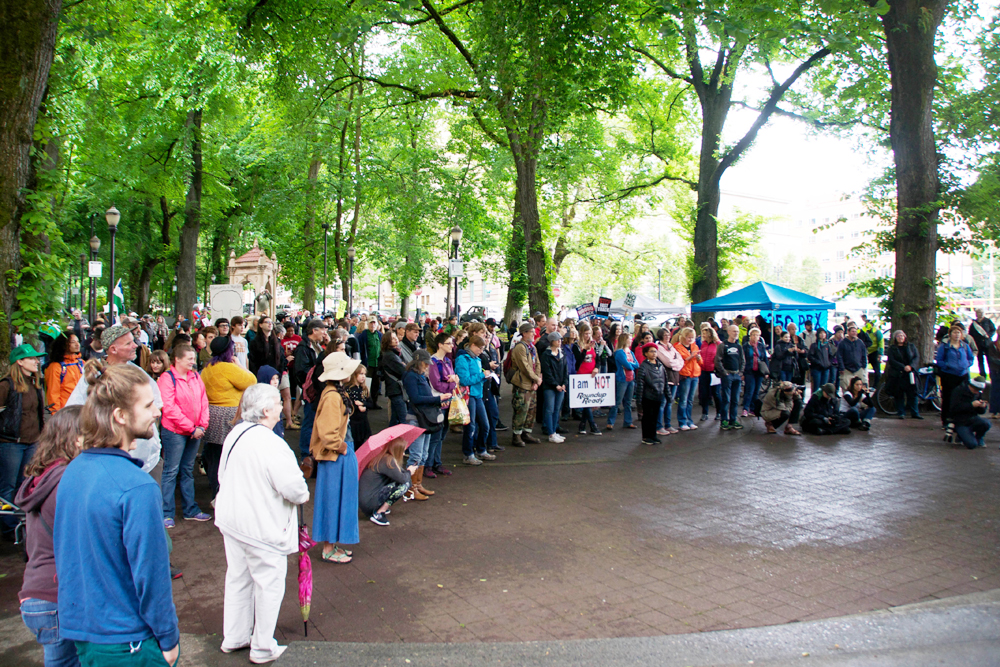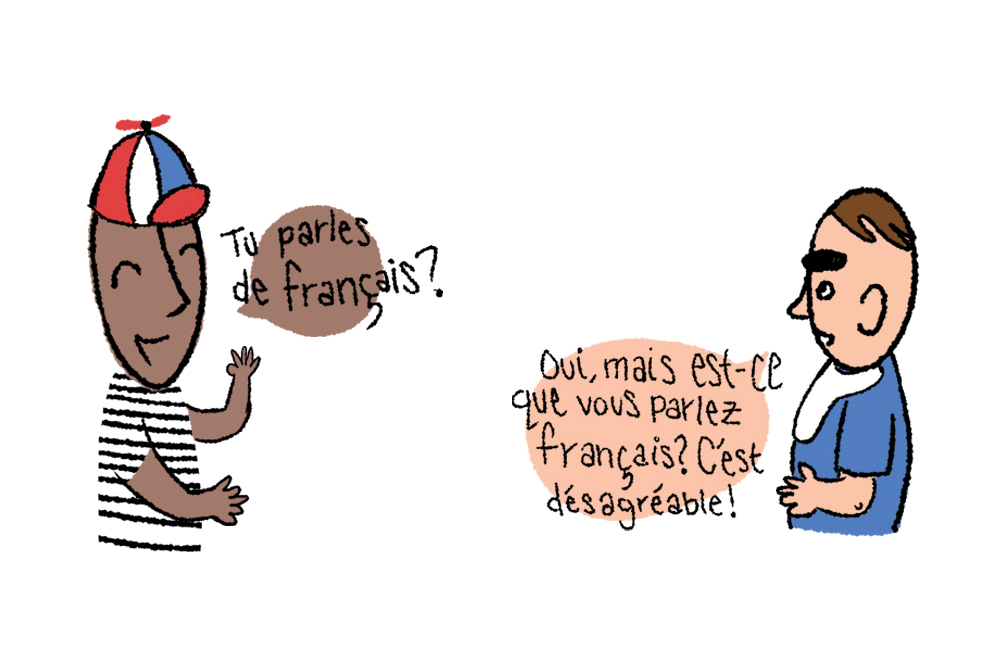The university hosted the Cascadia Cypherpunk Convergence on Saturday, April 11 in and around the Smith Memorial Student Union to teach and discuss cryptography and other technology-related issues. The event was organized by the Cascadia Cypherpunk Collective.
According to the group’s website, a cypherpunk is someone who uses cryptography and similar methods to achieve societal and political change.
Encryption and using codes and secret languages are involved in cryptography. In today’s age, we see encryption in various computer programs, social messaging and online passwords. Cryptography is the study of non-physical codes and secret languages.
The daylong event covered a wide variety of topics, speakers, and workshops related to the modern internet age and its underground elements.
Johannes Pedersen of the CCPC headed the organizing of all the activities, which included subjects such as NSA surveillance reform, feminist hackerspaces, electronic civil disobedience and mesh networking.
“We choose the topics we felt were the most accurate benchmarks for the direction we see our society heading,” Pedersen said. “In other words, the topics we choose were those that show the most promise for pushing a change away from the status quo.”
Cody Wilson was one of the biggest names in attendance. Wilson is know for making the first 3D-printed gun and forming Defense Distributed, which is currently pending approval as a nonprofit corporation. He was one of two closers for the event.
Wilson addressed Phil Zimmerman, designer of the email encrypting program, Pretty Good Privacy, and what has been deemed the crypto-wars; governmental regulation on encrypting technology.
Jay Liederman, a lawyer who works with hacking-related culture and defender of the group Anonymous, headed the talk on electronic civil disobedience, which discussed current law and free speech issues.
There was a workshop on designing mesh networks which, according to the event’s description, are non-centralized, resilient, self-healing forms of internet architecture.
A legislative analyst from the Electronic Frontier Foundation, Mark Jaycox, spoke on the NSA and electronics law, surveillance law and the Electronic Communications Privacy Act. Jaycox also addressed the Patriot Act and a few of its sections that are up for renewal in June of this year.
Another workshop on permaculture, by Toby Hemengway, addressed current agriculture and global unsustainability.
The first topic of the day was dark markets, led by William Gillis.
Dark markets represent a deeper level of the internet, sometimes referred to as the deep web, rather than the more accessible surface-level that many are familiar with. Within the deep web, there lies a whole industry of underground activity that could be used as tools of liberation, or for criminal activity.
Concluding the day, Molly Danielson looked at feminist hackerspaces, trending internet groups used for the sharing of ideas and enlightenment in the modern era.
Saturday’s daylong convergence was CCPC’s first event.
“Our next project is to work on the mesh net,” Pedersen said. “We think that this resilient, self-healing, internet architecture holds the promise of allowing us to increase the amount of democracy, liberty and economic prosperity we experience in our daily lives.”
Pedersen saw the event as a great tool for networking. He said we would see more from CCPC, even if it comes under a different name.
CCPC was overseen by Students for Unity which, among other projects, have organized for Food for Thought Café, a now defunct student-run restaurant, and the Rearguard, a student newspaper.
“SFU both sponsors and oversees the Cascadia Cypherpunk Collective,” Justin Floyd, coordinator fo SFU, said.
SFU also planned to use the event as a tester to see what type of subjects get more people interested in radical organizations and politics.
According to Floyd, SFU is 17-years-old officially, but the institution may be older. It’s unclear, due to lack of far-reaching institutional recordkeeping. He said the SFU is one of the highest-funded groups on campus.
The SFU, which is composed of fewer than 10 members, may be moving in a new direction, according to Floyd.
“[There] might be a complete facelift for the organization,” Floyd said, though only speculatively.
Floyd said the goal of the SFU is to get more students involved: “To get people thinking in new and more radical ways,” Floyd said, “to constantly engage and facilitate radical dialogue and perspectives.”
Students for Unity and the Cascadia CypherPunk Collective are looking to take the fear and negativity out of the word radical, and to get a larger and more diverse group of students involved in their network.






